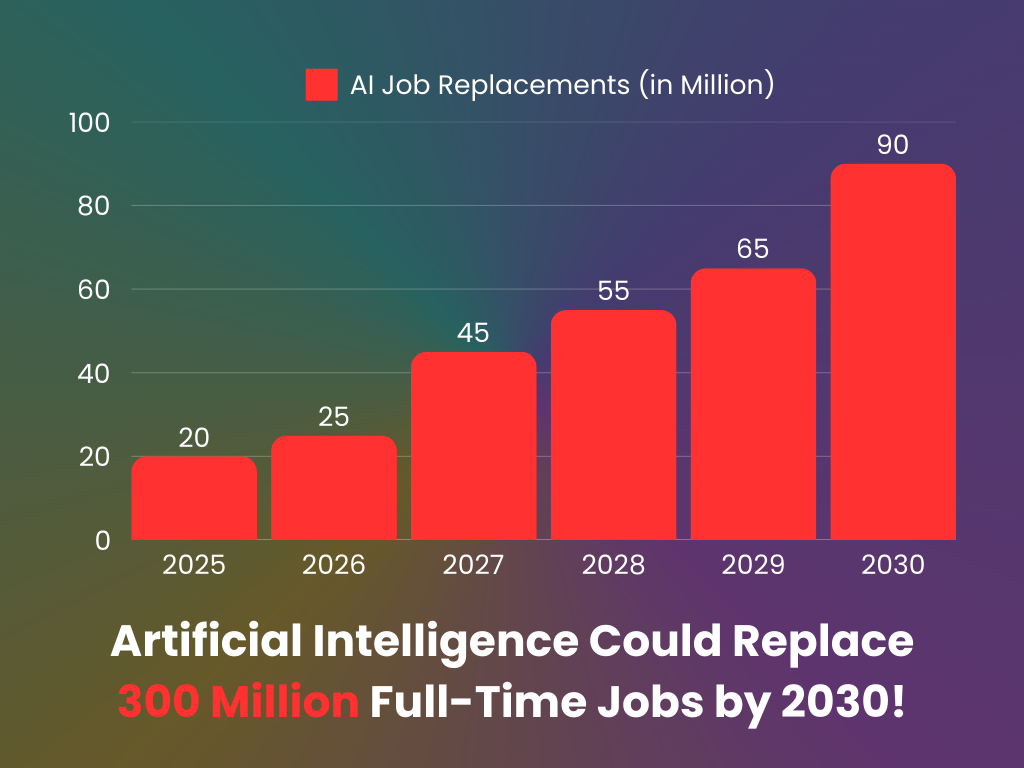By futureTEKnow | Editorial Team
Artificial intelligence isn’t just reshaping industries—it’s set to transform the very foundation of the global economy. According to Anton Korinek, a leading AI economist, artificial general intelligence (AGI) could arrive within the next 2–5 years, bringing with it seismic changes that will touch every worker, business, and government.
“It’s completely unpredictable what the world will look like in a couple years down the road.” — Anton Korinek
The pace of AI development is so rapid that even experts admit it’s nearly impossible to predict what the world will look like in a few years. Traditional advice like creating a five-year career plan is quickly becoming obsolete. As technology evolves, short-term adaptability and continuous learning are the new survival skills.
We’re approaching a threshold where AI systems can outperform most humans in tasks ranging from math and data analysis to creative problem-solving. While AI isn’t yet on par with the top human experts in every field, it has already surpassed the average worker in many domains. As AI becomes cheaper and more capable, the value of human labor is set to decline.
AI saturating benchmarks in coding, math, and text analysis
Businesses investing heavily in automation
Human workers becoming increasingly replaceable

As AGI advances, the traditional system—where most people earn income through work—may no longer be viable. Universal basic income (UBI) or similar models will likely become necessary to ensure everyone shares in the economic gains. This isn’t just a radical idea; it’s quickly becoming a practical necessity to avoid mass immiseration and social instability.
AGI could do almost anything a human can.
Wages and labor market value are expected to fall as AI substitutes for people.
Income distribution systems must be reimagined to prevent widespread hardship.
Despite the hype, AI’s impact isn’t yet fully visible in productivity statistics or macroeconomic variables. But the groundwork is being laid: companies worldwide are integrating AI into their processes, and the biggest payoffs are still ahead. The expectation is that, within a few years, AI will trigger a massive economic transformation.
The main challenge of the AI era will be ensuring technological progress benefits everyone, not just a select few. If left unchecked, AI could exacerbate inequality, destabilize political systems, and concentrate power in the hands of a few dominant tech companies.
Mass job displacement and loss of income.
Political destabilization from economic upheaval.
Market concentration among a few AI superpowers.
Leveraging AI as a force multiplier in education and business.
Developing new models of income distribution.
Building global cooperation and safety standards for AI governance.
Stay informed and agile. The most valuable skill is the ability to adapt and learn how to use AI tools effectively.
Rethink education. Teaching students and workers to leverage AI will be crucial for future success.
Push for smart regulation. Governments need to build expertise and create frameworks that encourage innovation while mitigating risks.
Prepare for new economic models. Universal basic income or similar systems may soon be necessary to maintain social stability.

Bridgit Mendler’s Northwood Space is pioneering mass-produced ground stations, enabling scalable, high-speed connectivity for the new era of satellite networks and megaconstellations.

SpaceX aims to nearly double launches from Vandenberg in 2025, facing support from federal agencies but strong objections from the state and local communities.

Traditional Medicare will pilot AI-assisted prior authorization in 2026 across six states, focusing on high-risk outpatient services. Clinicians retain final say, but incentives and access concerns loom as CMS tests fraud reduction and “gold card” exemptions. Here’s what providers and patients should know.

OpenArt’s new “one-click story” compresses scripting, visuals, and edits into ready-to-post short videos—fueling viral growth and a fresh IP debate. We break down how it works, adoption signals, what’s next (multi-character, mobile), and practical guardrails creators and brands should follow to stay original and compliant.

OpenAI’s o3 swept the Kaggle AI chess tournament, defeating xAI’s Grok 4–0. The victory fueled the intense rivalry between Altman and Musk, reshaping AI benchmarks.

NASA and Google’s AI-powered Crew Medical Officer Digital Assistant enables autonomous diagnoses for astronauts on Mars missions, redefining remote healthcare for space and Earth.

Pinterest’s CEO confirms that fully agentic AI shopping is years away, as the platform invests in AI-powered tools to enhance discovery, inspiration, and personalized shopping experiences for millions.

Shopify’s new AI shopping tools are transforming e-commerce, letting agents and chatbots deliver smooth, personalized shopping and checkout experiences across platforms. Learn how these innovations reshape online retail.

Meta has acquired WaveForms AI, a startup pioneering emotion-detecting voice technology. Learn what this means for Meta’s AI voice ambitions and the future of AI audio.

Tracelight is revolutionizing financial modelling for finance professionals with AI-powered Excel tools that automate complex tasks, reduce errors, and unlock new analysis capabilities. Learn how this next-gen solution changes the future of spreadsheets.

China’s Lanyue lander completed its first major test, showcasing advanced engineering for safe, crewed moon landings before 2030. Explore how this milestone shapes the space race.

Microsoft rolls out GPT-5 across its Copilot suite, integrating smarter AI for enterprise and personal users. Discover new features, free access, and what sets this launch apart.
To provide the best experiences, we use technologies like cookies to store and/or access device information. Consenting to these technologies will allow us to process data such as browsing behavior or unique IDs on this site. Thanks for visiting futureTEKnow.